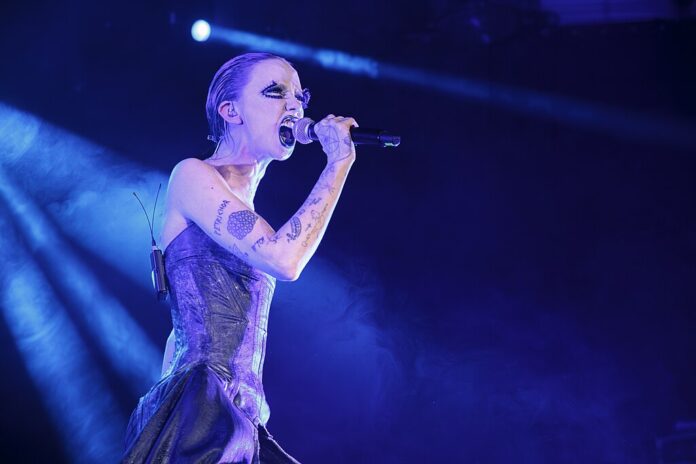Irish hopeful Bambie Thug calls for unity and support in the Eurovision final, amidst a backdrop of political tensions and security concerns
In the lead-up to the Eurovision Song Contest grand final in Malmo, Irish entrant Bambie Thug has ignited excitement and anticipation among fans, urging them for one final push to “Crown the Witch.” The non-binary artist, known for their dynamic stage presence and impactful messages, expressed a readiness to channel their energies into a performance that promises to be both memorable and transformative.
Bambie Thug, who previously captured attention in the semi-finals with their song “Doomsday Blue,” spoke of an “intense” atmosphere pervading the contest, exacerbated by unforeseen disruptions during rehearsals. The artist described the current environment as “very intense,” a stark contrast to earlier stages of the competition, which felt more grounded.
Compounding the tension, the Eurovision community faced unexpected challenges when the Netherlands’ Joost Klein was absent from his scheduled rehearsal, prompting an investigation by the European Broadcasting Union (EBU). The situation added to the already heightened security measures around the venue, amid ongoing protests and calls for the exclusion of certain participating countries.
Bambie Thug also highlighted the controversy surrounding Israel’s participation, which has cast a significant shadow over this year’s event. They criticized the restrictions imposed on interactions between contestants, suggesting that open dialogue could lead to more understanding and possibly change perspectives.
Despite these challenges, Bambie Thug remains focused on the opportunity to bring Eurovision glory back to Ireland, a triumph that would echo the nation’s last victory in 1996. The significance of such a win would resonate deeply with the artist, symbolizing not only a personal achievement but also a victory for their community and country.
Analysis:
Bambie Thug’s call to their fans ahead of the Eurovision final is more than just a plea for votes; it is a summons to recognize and celebrate diversity and resilience in the face of adversity. The artist’s use of the platform to address broader social issues reflects a growing trend in Eurovision, where performances increasingly serve as vehicles for political, social, and cultural commentary.
From a sociological perspective, Bambie Thug’s appeal to “the witches of Europe” and their engagement with politically charged symbols during performances highlight the contest’s role as a forum for discussing and challenging societal norms. These actions also underscore the ongoing struggle for representation and acceptance faced by non-binary and LGBTQ+ individuals in the public eye.
Economically, the heightened security and the intense media coverage of the controversies surrounding this year’s Eurovision suggest significant investments and stakes are involved, not only for the artists but for the host city and participating broadcasters. The potential return on these investments extends beyond the immediate economic boost to encompass long-term benefits related to cultural tourism and international reputation.
Politically, the contest has become a microcosm of larger global tensions, reflecting the complexities of international relations in a cultural context. Eurovision’s handling of these issues could set precedents for how cultural events can navigate the intersection of entertainment, politics, and diplomacy.
